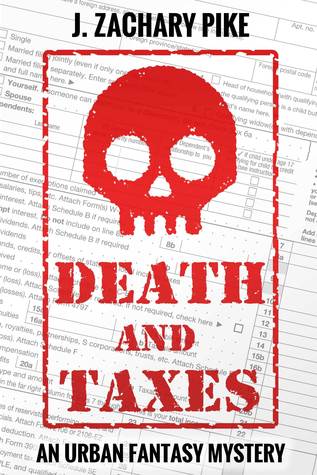Huey rated Four Thousand Weeks: 4 stars

Four Thousand Weeks by Oliver Burkeman
The average human lifespan is absurdly, outrageously, insultingly brief: if you live to 80, you have about four thousand weeks …
Science fiction, technology, law, and Singapore.
I'm on Mastodon as @[email protected]
This link opens in a pop-up window

The average human lifespan is absurdly, outrageously, insultingly brief: if you live to 80, you have about four thousand weeks …

A man learns that all the animals at the Zoo are robots. A secret terminal in Changi Airport caters to …

A doubly disgraced dwarven hero. A band of accident-prone adventurers. Giving redemption a second shot may have been a grave …

When Arthur takes a job at a Blue's Doughnuts, he has no idea that his fat, obstinate boss Buford Lafont …
Leslie Klinger is an expert in Sherlockian literature and an attorney who fought to keep Sherlock Holmes in the public domain despite attempts by the Conan Doyle estate to argue otherwise. The Conan Doyle estate attempted to argue, during litigation relating to Netflix's Enola Holmes and Miramax's Mr Holmes, that copyright law protects certain personality traits of Holmes that were only alluded to in later stories (whose copyright has not expired). But Klinger was successful in persuading the court that copyright law does not protect personality traits of fictional characters.
I read this some time back, but began thinking about it again recently. It was tricky tracking it down based on the vague impression I had at the back of my mind, but the re-read was entirely worth it. The incredibly imaginative premise of the story is that the essence of humanity, perhaps what some people would describe as a 'soul', is the ability to observe, to collapse the quantum wave function and resolve superposition into existence. General AI with free will lack this innately human ability, and hence are frozen in a state of superposition when not observed. Putting aside the scientific inaccuracy, the story is chilling, haunting, and dystopic, yet at the same time a gripping, imaginative thriller.
In this semi-autobiography, Subhas describes his upbringing and some of the well-known cases that he handled. As he says, he writes for the man in the street, so there is hardly any legal language and certainly no legal analysis.
Considering he was one of the most well-known members of the Criminal Bar, I found that the book provided context for why certain aspects of criminal practice are to the way they are and why certain changes were made to the law. Many famous names feature in the book, including David Marshall, who defended Subhas when he was framed for gang activities, Francis Xavier who reportedly still owes Subhas money, and Chan Sek Keong who was Subhas's pupil master.
A collection of unique, thought-provoking stories. They are similar yet quite different from the other sci-fi short stories I've read before. For instance, "The Time Migration" initially reminded me of Asimov's The End of Eternity, but it turned out to be quite different.
"The Village Teacher" is a tear-jerker but it rather predictable and a bit deus ex machina towards the end. But stick with it because it gets better. The stories in the second half are better than in the first half I think.
@[email protected] #Bookstodon #BookWyrm

Collection of imaginative science fiction.
Stories included are: